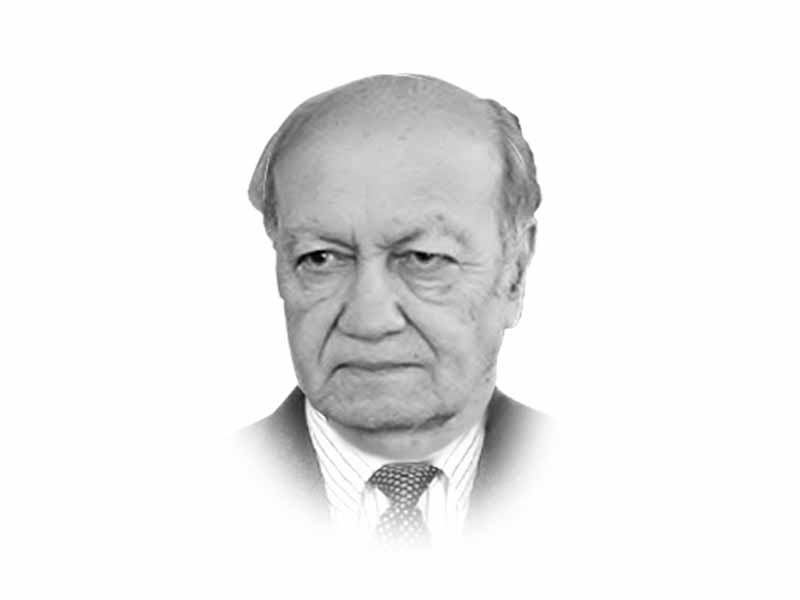
Afghanistan’s leadership expects Pakistan to stop patronising the Taliban and take definitive steps against the powerful Haqqani network that is blamed for the daring siege of the strategic city of Kunduz last April followed by the catastrophic suicide assault on an elite military unit in Kabul in which there were scores of fatal casualties and over 300 injured.
Afghans want the Pakistan military to compel the Taliban to engage in a dialogue that leads to a political settlement. Our military feels that it has limited influence over them and it is for the two Afghan antagonists to find a political solution. Pakistan, at best, can facilitate the dialogue process and even that is becoming problematic.

It may be politically expedient for a faltering regime to blame Pakistan while the hard reality is that the Afghan government, due to chronic political infighting, poor governance and the limited ability of its security forces, is ceding territory and control to the Taliban in several provinces. Exploiting these weaknesses, the Taliban have stepped up their offensive and are in no mood to engage in dialogue. The other determining factor is that Mullah Mansoor, to consolidate his leadership, is keen to demonstrate tactical gains in the insurgency and is less inclined to talk. Meanwhile, Pakistan remains under pressure, albeit unfairly, from the US to ‘do more’. At what stage, if at all, will the Taliban be inclined to engage in peace talks is uncertain. As and when this happens, both sides will have to demonstrate flexibility in their basic positions to make any headway.
Due to serious political differences between President Ghani and Abdullah Abdullah, it is unlikely that the former would be in any position to take any initiatives towards peace. The latest statement of Afghanistan’s ambassador to Pakistan that the Taliban be declared “irreconcilables” by the Quartet is to put pressure on the group’s leadership to engage in meaningful dialogue. The statement also has a message for Pakistan that it should act against the Taliban in case they remain averse to a political settlement.
One of the main demands of the Taliban is the withdrawal of American and Nato forces. They insist that they would only talk about a ceasefire with the Americans and brand the Afghan government as their stooges. The objective reality is that the Afghan National Army in its present state of morale and combat readiness is not in a position to hold ground on its own. Despite a relatively small American presence, their contribution becomes significant in conducting air strikes as well as when it comes to providing air support to Afghan forces during ground operations and under critical operational conditions. There are other political and economic implications apart from the psychological factor if Americans were to leave at this stage. It will reflect an attitude of abandonment by the US and other Western countries. On the contrary, the presence of foreign troops, historically, has been an anathema to the Afghans. The genesis of the present situation is rooted in their resistance to the erstwhile Soviet occupation. The current situation presents a paradox with the government looking at the US and Nato countries as liberators, and the Taliban viewing them as occupiers, conveniently ignoring that their predecessor, the Mujahedeen, were at one time their allies.
Today, Pakistan finds itself in a catch-22 situation. Its failure to persuade the Taliban to come to the negotiating table has unfairly earned the ire of the Afghanistan government and provided the US with an opportunity to start a blame game. Scapegoating and derogatory public statements, however, do not solve problems. They only aggravate them. Unsurprisingly, this is reflected in the Taliban taking full advantage of this both politically and on the battlefield by closing ranks, with the exception of the dissident faction led by Mohammad Rasool.
Pakistan’s claim that it has limited influence over the Taliban is not taken at face value and is a cause of tension with both the Afghans and the US. This is largely true, as the Pakistan military can only push the Taliban to a certain extent. If the military takes military action against them, there are always fears that the Afghan Taliban will then join the TTP and other militant groups that are inimical to Pakistan, creating serious consequences for our own security. Moreover, Afghanistan’s fragile power structure, uncertain political future and leanings towards India are additional restraining factors inhibiting Pakistan from placing all its eggs in one basket. Already, the Taliban exercise considerable control over several provinces, especially those in the east and south, close to the Pakistan border.
The India factor has been a major reason in influencing Pakistan’s policy towards Afghanistan. Kabul has always tried to leverage its position by maintaining close ties with India to Pakistan’s chagrin. This vexing action-reaction phenomenon has bedevilled Afghan-Pakistan relations from which both countries need to come out of. Afghanistan’s refusal to accept the Durand line is a major impediment in the way of regulating the border and a constant irritant in a problematic relationship. All these issues have economic and political ramifications for both countries that need to be resolved peacefully. Safe havens on both sides of the border have strengthened militants and weakened the two states. Fata and Khyber-Pakhtunkhwa have been the worst sufferers on our side and similarly, Kunar, Nuristan, Khost and other eastern and southern provinces on the Afghan side. Pakistan is sceptical of US motives in the region and its growing strategic ties with India. It is also not sure whether the US will retain interest in Afghanistan after Barack Obama leaves office or would there be a repeat of past events.
Published in The Express Tribune, May 18th, 2016.
Like Opinion & Editorial on Facebook, follow @ETOpEd on Twitter to receive all updates on all our daily pieces.












COMMENTS (14)
Comments are moderated and generally will be posted if they are on-topic and not abusive.
For more information, please see our Comments FAQ